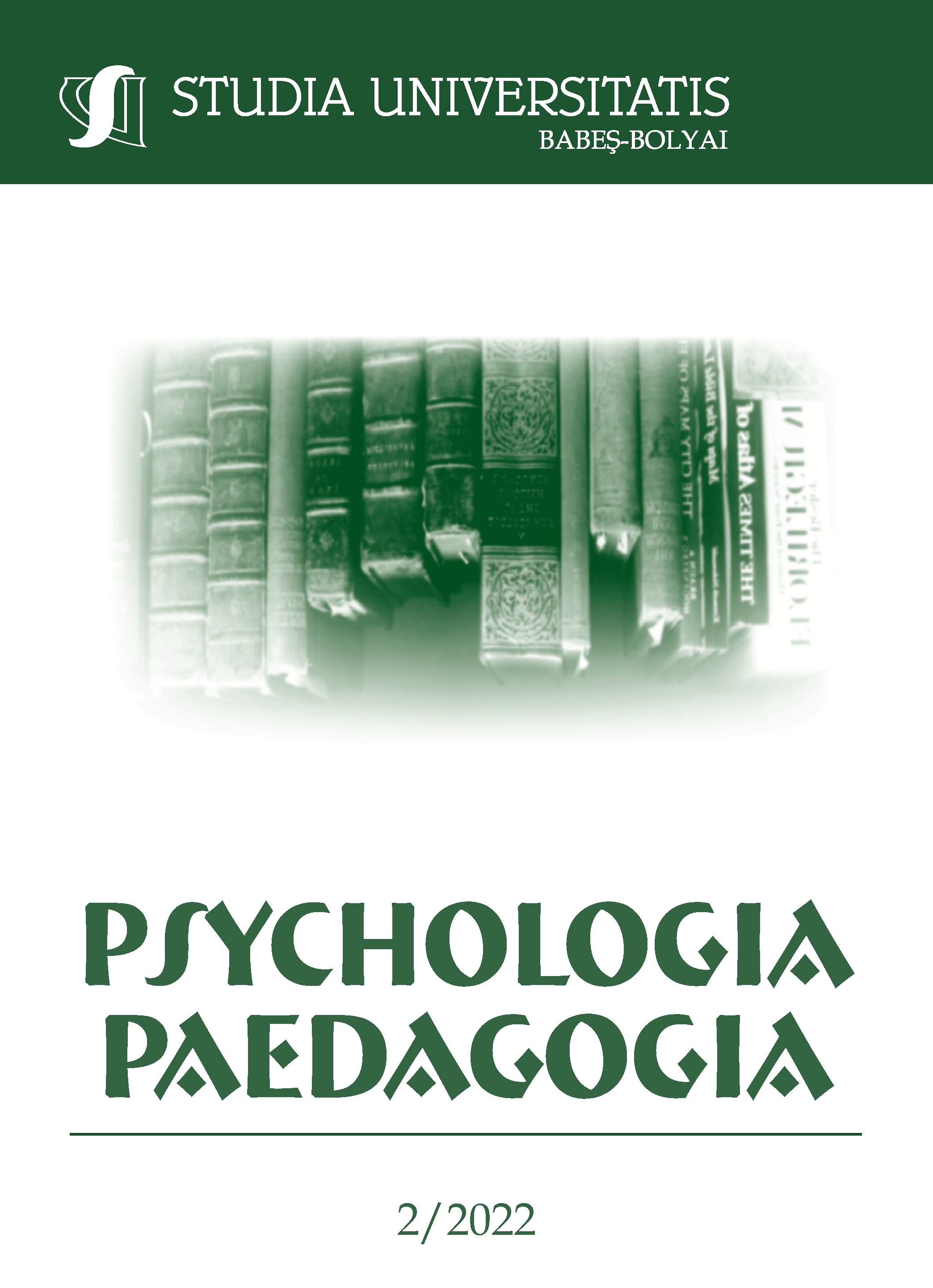UNIVERSITY TEACHERS’ SKILLS AND ROLES IN STUDENT CENTERED EDUCATION
DOI:
https://doi.org/10.24193/subbpsyped.2022.2.08Keywords:
teacher’s skills; teacher’s roles; student-centered learning; students’ perception.Abstract
In academic education, according to the regulations imposed by the Bologna Process, the student is placed in the center of the educational process, fully considering the trainee interests for deepening the knowledge and taking into account the own personality, as autonomous and responsible citizen. This paradigm attributes to student an active role, becoming in this sense a partner for teacher in the fulfilment of own training and professional development. Based on constructivist theory, student-centered education emphasizes the understanding, building and reconstructing of knowledge experiences, experimentation, reflective approach related to teaching-learning process, involving also the adaptation of the teaching methods to learners’ interests and needs, creativity and innovation. The relationship between teacher and student has multiple values, it is based on respect and trust, in order to achieve common goals. Feedback has an important and relevant role in optimizing the educational process. In the current socio-economic and cultural context, amplified by the effects of the pandemic, the rate of school leaving becomes high, which implies the adoption of effective measures for students to benefit from support, help, counseling and guidance. In addition to their roles required by student-centered education, teachers must express more openness, flexibility, ability to adapt to online constraints and understand the students’ needs. The paper aims to identify the expectations that students have in relation to university teachers and to design a teacher’s skills pattern in the actual context. For this purpose, 245 students from Valahia University of Targoviste, enrolled in the Teacher Training Department programs have been interviewed and asked to express their expectations, attitudes and perceptions about their teachers.References
Attard, A., Di Iorio, E., Geven, K., & Santa, R. (2010). Învăţământul centrat pe student. Ghid pentru studenţi, cadre didactice şi instituţii de invăţământ superior. [Student centered leaning. Guide for students, teachers and higher education institutions]. https://www.anosr.ro/wp-content/uploads/2012/07/2012-Toolkit-ICS-cadre-didactice1.pdf
Collins, J. W., & O'Brien, N. P. (Eds.). (2003). Greenwood Dictionary of Education. Westport, CT: Greenwood.
Cristea, S. (2008). Istoria gândirii pedagogice: Jean-Jacques Rousseau. [The history of pedagogical thinking: Jean-Jacques Rousseau]. Studia Universitatis, 5(15), 146-150. http://studiamsu.eu/wp-content/uploads/29-p146-150.pdf
Lea, S. J., Stephenson, D., & Troy, J. (2003). Higher Education Students’ Attitudes to Student-Centred Learning: Beyond Educational Bulimia. Studies in Higher Education, 28(3), 321-334.
Gordon, E. W., Gordon E. W., Aber, L., & Berliner, D. (2012). Changing Paradigms for Education: From Filling Buckets to Lighting Fires to Cultivation of Intellective Competence. Gordon Commission: Toronto. https://www.ets.org/Media/Research/pdf/gordon_gordon_berliner_aber_changing_paradigms_education.pdf
Jony, S. (2016). Student Centered Instruction for Interactive and Effective Teaching Learning: Perceptions of Teachers in Bangladesh. International Journal of Advanced Research in Education & Technology (IJARET), 3(3), 172-178. http://ijaret.com/wp-content/themes/felicity/issues/vol3issue3/mdsolaiman.pdf.
Șoitu, L., & Cherciu, R. D. (2006). Strategii educaționale centrate pe elev. [Educational strategies centered on students]. Buzău: Alpha MDN.
Todorescu, L. -L. (2009). Învăţământul centrat pe student-reper principal al Procesului Bologna. [Student centered learning - main landmark of the Bologna Process]. Buletinul AGIR, 2-3, 226-234. http://www.agir.ro/buletine/489.pdf.
Young, L. E., & Paterson, B. L. (2007). Teaching nursing: Developing a student-centered learning environment. Philadelphia, PA: Lippincott Williams & Wilkins.
*** European Education Area. Quality education and training for all. The teaching professions. https://education.ec.europa.eu/focus-topics/teachers-trainers-and-school-leaders/teaching-professions
Downloads
Published
How to Cite
Issue
Section
License
Copyright (c) 2022 Studia Universitatis Babeș-Bolyai Psychologia-Paedagogia

This work is licensed under a Creative Commons Attribution-NonCommercial-NoDerivatives 4.0 International License.


